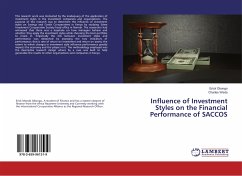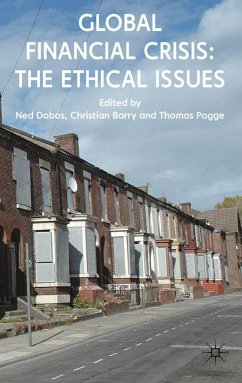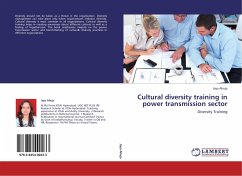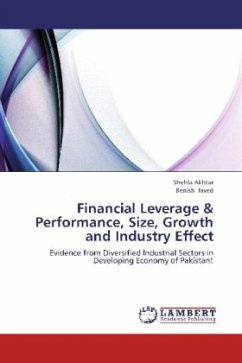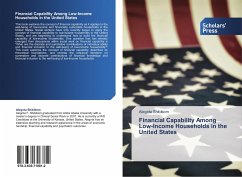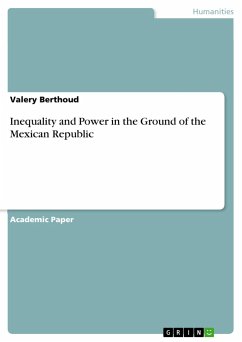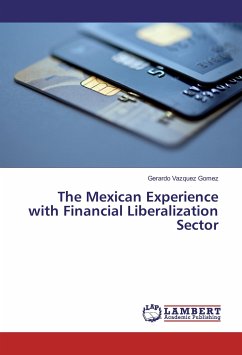
The Mexican Experience with Financial Liberalization Sector
Versandkostenfrei!
Versandfertig in 6-10 Tagen
59,99 €
inkl. MwSt.

PAYBACK Punkte
30 °P sammeln!
After WWII, the Mexican government took increasingly the control over the economy including the banking sector in 1982. By 1985, a worsening economic crisis forced the government to begin a process of economic liberalization. The 1994-1995 financial crisis prompted efforts to develop a sound prudential framework for Mexico's financial system. Toward this goal, liberalization in financial services is vital for developing countries to make their build financial systems viable and their economies stronger. Related economic legal reform scholarship indicates that safe and sound financial markets a...
After WWII, the Mexican government took increasingly the control over the economy including the banking sector in 1982. By 1985, a worsening economic crisis forced the government to begin a process of economic liberalization. The 1994-1995 financial crisis prompted efforts to develop a sound prudential framework for Mexico's financial system. Toward this goal, liberalization in financial services is vital for developing countries to make their build financial systems viable and their economies stronger. Related economic legal reform scholarship indicates that safe and sound financial markets are built upon the effective implementation of key "international prudential standards". In 1995, Mexico started to work domestically, from the "bottom-up", in financial sector reform, while applying step by step international prudential standards and opening unilaterally the sector to foreign investment, even ahead of the liberalization agreed in NAFTA. NAFTA's and MEFTA's innovative chapters on financial services, with their various dispute resolution mechanisms, are examples of Mexico's commitment to promoting high levels of cooperation at the bilateral, regional and hemispheric levels.



